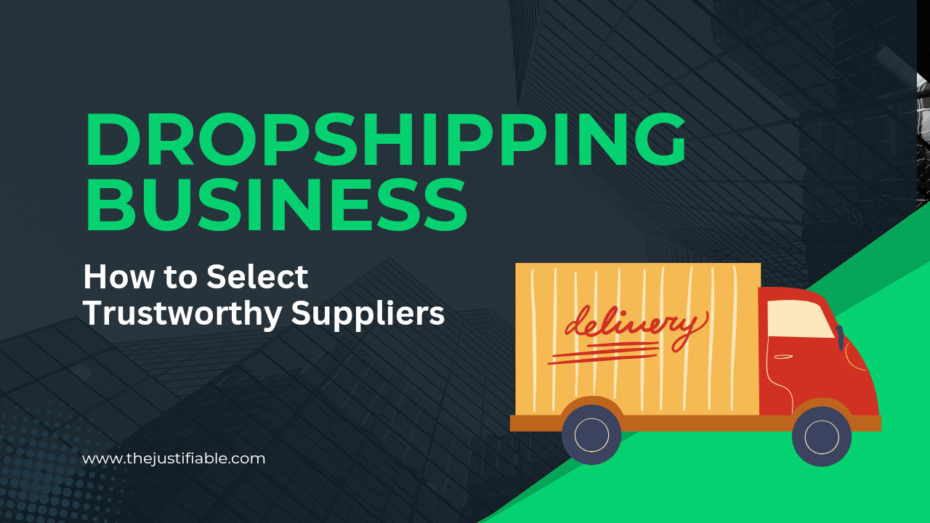Table of Contents
The dropshipping business model has witnessed a surge in popularity over recent years, primarily because of its low upfront costs and the ability to quickly scale. With the vast expanse of e-commerce platforms available today, launching a dropshipping business has never been more accessible. However, understanding its intricacies is crucial to navigating its waters successfully.
What is dropshipping and how does it work?
Dropshipping is a retail fulfillment method where a store doesn’t keep the products it sells in stock. Instead, when a store sells a product using the dropshipping business model, it purchases the item from a third party—usually a wholesaler or manufacturer—and has it shipped directly to the customer. In essence, the retailer never sees or handles the product.
This model’s primary distinction from the traditional retail setup is that the selling merchant doesn’t stock or own inventory. Instead, the dropshipping business owner purchases inventory as needed from a third party, typically a wholesaler or manufacturer, to fulfill orders.
One of the most significant advantages of dropshipping is its low barrier to entry. Entrepreneurs can start a business without tying up vast amounts of capital in inventory, nor do they need to handle the logistical challenges of warehousing and shipment.
Benefits of choosing the right supplier for your dropshipping business.
In the realm of dropshipping, your supplier is arguably your most crucial partner. Here’s why choosing the right one is vital:
- Product Quality and Consistency: A reputable supplier ensures that the products you sell are of high quality. This consistency can lead to repeat business and a robust brand reputation for your dropshipping business.
- Timely Shipments: The last thing you want is for your customers to experience extended waiting times. Reliable suppliers have efficient processes in place to ensure products are dispatched quickly and reach your customers within the promised time frame.
- Reduced Operational Hassles: A trustworthy supplier can effectively handle inventory management and order fulfillment, relieving you of significant operational burdens. This efficiency allows you to focus on growing and marketing your business.
- Transparent Communication: Issues can arise in any business. Whether it’s a delayed shipment or a product out of stock, a good supplier will communicate proactively, allowing you to manage customer expectations.
- Flexibility and Scalability: As your dropshipping business grows, your operations will need to scale. Reliable suppliers have the infrastructure and resources to support your growth, ensuring you can cater to an increasing customer base without hiccups.
Key Challenges Faced in the Dropshipping Business
Embarking on a journey in the dropshipping business realm can seem like a lucrative and straightforward endeavor. However, just like any other business model, dropshipping comes with its own set of unique challenges.
Delving deep into these challenges will not only prepare aspiring entrepreneurs for what lies ahead but also arm them with the necessary knowledge to overcome potential pitfalls.
Common issues faced by dropshippers
In the bustling world of the dropshipping business, entrepreneurs often find themselves grappling with a spectrum of issues. One predominant challenge is managing customer expectations.
Since the business owner doesn’t handle the products directly, ensuring the quality and timely delivery becomes a hurdle. This distance from the product also means that when customers have complaints or need returns, navigating these concerns can become more complex.
Additionally, with the dropshipping business model’s rising popularity, market saturation becomes an increasing concern. Many niches, especially popular ones, are flooded with sellers, making differentiation and capturing a significant market share harder than ever.
This saturation also brings with it intense price wars, where businesses are continually trying to undercut each other to attract customers, often at the cost of dwindling profit margins.
Moreover, dropshippers also face the challenge of maintaining real-time inventory updates. Nothing dampens a customer’s experience more than finding out the product they’ve paid for is out of stock. This misalignment can lead to dissatisfaction, refunds, and, most damagingly, a tarnished brand reputation.
The significance of supplier reliability
Supplier reliability in the dropshipping business isn’t just a crucial component; it’s the very backbone of the operation. When a supplier falters, the ripple effect can have far-reaching consequences, often with the dropshipper bearing the brunt of customer dissatisfaction.
Imagine running a successful dropshipping business marketing campaign, only to find that the supplier has failed to deliver on time. Not only does this lead to immediate customer dissatisfaction, but it can also jeopardize future business prospects and brand credibility.
Even if a dropshipper offers exceptional customer service, a supplier’s unreliability can overshadow these efforts, making the supplier’s role in the business equation undeniable.
Furthermore, the product’s quality hinges on the supplier’s adherence to standards. If the supplier compromises on quality, it’s the dropshipping business that faces negative reviews, returns, and potential loss of customer trust.
Criteria for Selecting Trustworthy Suppliers in Dropshipping Business
Venturing into the dropshipping business world means diving into a vast ocean of potential suppliers. With so many options to choose from, distinguishing between a reliable supplier and a mediocre one becomes paramount.
Making the right choice not only ensures the smooth operation of your business but also solidifies your brand’s reputation in the market.
Evaluating the supplier’s experience and reputation
In the dropshipping business, experience often equates to expertise. A supplier that has been in the industry for several years is likely to have encountered and resolved numerous challenges, honing their processes over time.
Moreover, an experienced supplier understands the nuances of market demands, ensuring they stay ahead of trends and equip dropshippers with products that resonate with the audience.
Reputation, on the other hand, serves as a mirror to the supplier’s past dealings. A supplier with consistently positive feedback and reviews is indicative of their commitment to quality and service. On the contrary, suppliers with a history of disputes or negative feedback should raise red flags.
In the world of dropshipping business, where the entrepreneur doesn’t interact directly with the product, relying on a supplier with a stellar reputation becomes a safety net, ensuring that customers receive what they’ve been promised.
Importance of communication and responsiveness
The heartbeat of any successful partnership in the dropshipping business is clear and consistent communication. A supplier that prioritizes open channels of communication ensures that potential issues are addressed promptly, reducing the likelihood of misunderstandings or errors.
Quick response times, especially during crises, can make a significant difference in how challenges are resolved. A supplier that leaves you waiting for days on end for a response is not only an operational hazard but can also jeopardize customer relationships.
Checking the quality of products and packaging
The core of the dropshipping business lies in delivering quality products. It’s essential to collaborate with suppliers who don’t compromise on product standards. Since dropshippers don’t typically see the products firsthand, it’s wise to occasionally order samples.
This practice provides a direct insight into what the customer receives, from the product’s quality to its packaging. A product that arrives in poor packaging or seems subpar in quality is a direct reflection on your brand, even if the responsibility lies with the supplier.
Assessing shipping times and reliability
In today’s fast-paced e-commerce landscape, customers anticipate quick deliveries. Lengthy shipping times can deter potential customers and lead to cart abandonments. Therefore, it’s vital to partner with suppliers who have a proven track record of prompt shipping.
Additionally, reliability in this context also relates to accuracy. A supplier who frequently misships orders or sends defective products can quickly tarnish the reputation of your dropshipping business. It’s always beneficial to monitor shipping performance regularly, ensuring that the supplier maintains their promised standards.
Effective Methods to Verify Supplier Credibility
In the dynamic realm of the dropshipping business, the role of a supplier extends beyond merely providing products. They essentially become a trusted partner upon whom the success and reputation of your business often hinge.
Given this critical relationship, verifying the credibility of potential suppliers is not just wise, but essential. So, how can dropshipping entrepreneurs ensure they’re partnering with the best in the business?
Conducting thorough online research and reviews
In the digital age, the internet is a treasure trove of information, making it a premier starting point in the supplier verification process for any dropshipping business. Begin by searching for the supplier’s name followed by words like “reviews,” “complaints,” or “scam.”
This simple exercise can unearth a plethora of feedback from other businesses or customers who’ve dealt with the supplier. While a couple of negative reviews might not be a deal-breaker (no business is perfect), a consistent pattern of grievances should serve as a warning sign.
Additionally, explore the supplier’s own website and digital presence. A professional, well-maintained website, complete with clear contact information, terms of service, and product details, often indicates a serious and dedicated business.
Asking for business references or case studies
One of the most direct ways to gauge a supplier’s credibility in the dropshipping business world is by requesting business references or case studies. Established suppliers often have a roster of businesses they’ve partnered with in the past or are currently serving.
By reaching out to these references, you can gain firsthand insights into the supplier’s operational efficiency, product quality, and overall reliability. Similarly, case studies can provide a detailed overview of how the supplier has contributed to the success of other dropshipping businesses.
Performing sample product orders to test quality and delivery
While research and references are invaluable, nothing beats personal experience. By placing a sample product order, you can evaluate multiple facets of the supplier’s operation.
From the efficiency of the ordering process to the delivery speed, and most crucially, the quality of the product and its packaging, this method offers a comprehensive look into what your customers will experience. It’s a proactive step that can help preempt potential issues before they affect your dropshipping business.
Leveraging dropshipping business forums and communities
The dropshipping business community is vast, and many entrepreneurs willingly share their experiences, successes, and challenges. Forums and online communities centered around dropshipping can be goldmines of information regarding supplier credibility.
Engaging in these platforms, asking questions, and reading through past discussions can help you identify suppliers who’ve consistently demonstrated reliability and those who’ve fallen short. Remember, in such communities, collective wisdom often points in the right direction.
To wrap it up, the journey to finding a credible supplier for your dropshipping business might require time and effort, but it’s an investment that pays off manifold in the long run. With the right supplier by your side, you’re not just ensuring smooth operations but also cultivating trust and loyalty among your customers.
Red Flags to Watch Out for When Choosing Suppliers
The dropshipping business landscape, while filled with opportunities, also presents potential pitfalls. A significant part of navigating this landscape successfully lies in the careful selection of suppliers.
While many suppliers promise the moon, discerning entrepreneurs know that not all deliver on these promises. Recognizing the red flags early on can save a dropshipping business from unnecessary setbacks, ensuring its trajectory remains upward and unimpeded.
Inconsistent communication or long response times
Effective communication forms the cornerstone of a successful partnership in the dropshipping business. When suppliers falter in this basic aspect, it’s often a forewarning of bigger underlying issues. If you find that a supplier is regularly unresponsive or takes an inordinate amount of time to reply to queries, it can indicate a lack of professionalism or an overextended operation.
In the fast-paced world of e-commerce, where customer queries and concerns demand swift action, such communication lags can jeopardize your brand’s reputation and customer satisfaction.
Unusually low prices that seem too good to be true
While competitive pricing is an attractive aspect in the dropshipping business, prices that seem too good to be true often are. Unusually low prices can signal several potential issues: counterfeit products, subpar quality, or even unethical manufacturing practices.
While these low costs might seem beneficial in the short term, they can lead to significant problems down the line, from dissatisfied customers to potential legal entanglements. In the dropshipping world, it’s crucial to remember that value isn’t just about cost but encompasses quality, reliability, and ethical standards.
Negative reviews and unresolved disputes
Every business can face the occasional hiccup, but a pattern of negative reviews and unresolved disputes is a glaring red flag. Such patterns often indicate systemic issues within the supplier’s operations, be it in product quality, shipping reliability, or customer service.
Engaging with such a supplier can mean not only inheriting their problems but also risking your dropshipping business’s reputation. It’s always wise to pay heed to collective feedback, especially when the same issues surface repeatedly.
Lack of transparency in terms of origin, manufacturing, or shipping practices
Transparency is the hallmark of a trustworthy supplier in the dropshipping business. Suppliers who are evasive or vague about the origins of their products, their manufacturing practices, or their shipping processes often have something to hide.
This lack of clarity can result in unexpected challenges, from customers inquiring about product origins to potential breaches of ethical or environmental standards. A credible supplier will always be open about their practices, ensuring that their dropshipping partners can confidently stand by the products they’re selling.
Enhancing Your Dropshipping Business with the Right Partnerships
Navigating the dropshipping business universe is akin to steering a ship in open waters. While your skills as a captain are crucial, it’s equally vital to have a reliable crew—your suppliers and partners—by your side.
Just as the strength and synergy of the crew determine the voyage’s success, the partnerships forged in the dropshipping realm play an instrumental role in charting the trajectory of your business.
The role of strong vendor relationships in business growth
Deep-rooted vendor relationships don’t merely serve an operational need in the dropshipping business; they form the backbone of business growth. Suppliers who understand your vision can tailor their offerings, ensuring you’re always ahead of market trends.
Moreover, a strong bond with suppliers often leads to better negotiation in terms of pricing, payment terms, and even exclusive product access.
However, the benefits aren’t just transactional. When vendors are treated as valuable partners rather than just service providers, they’re more likely to go the extra mile during peak times or in crisis situations.
This seamless operational efficiency doesn’t just save time and money; it also builds brand credibility, ensuring your dropshipping business consistently delivers what it promises to its customers.
Tips to maintain and nurture a fruitful supplier relationship
In the ever-evolving landscape of the dropshipping business, maintaining and nurturing supplier relationships is an art and science combined. First and foremost, open communication is paramount. By ensuring all expectations, concerns, and feedback are transparently shared, misunderstandings and potential friction can be minimized.
Additionally, respect is reciprocal. Just as you’d want timely deliveries and quality products, suppliers appreciate prompt payments and clear order communications. This mutual respect fosters trust, turning a mere business transaction into a collaborative partnership.
Moreover, flexibility is crucial. The dropshipping business, with its global nature and rapidly changing trends, can be unpredictable. Understanding that both you and your suppliers can face challenges and showing a willingness to adapt in such situations can strengthen the partnership further.
Periodic reviews and feedback for continuous improvement
The road to excellence in the dropshipping business is one of continuous improvement, and periodic reviews are its milestones. Regularly taking stock of how the partnership is faring—be it in terms of product quality, delivery times, or communication efficiency—ensures both parties are aligned in their objectives.
Feedback, when constructive, can be a goldmine for growth. Instead of merely pointing out issues, framing feedback as opportunities for enhancement can motivate suppliers to innovate and elevate their service standards.
Such reviews shouldn’t be a one-way street; soliciting feedback about your own operations can provide insights into areas of improvement, making the partnership more harmonious and beneficial.
Conclusion: Building a Successful Dropshipping Business with Trustworthy Suppliers
In the mosaic of the dropshipping business, each tile plays a pivotal role in crafting the overarching image of success. While the strategy, marketing, and customer service form significant pieces, the cornerstone tile—often the unsung hero—is the supplier.
As we draw this exploration to a close, let’s encapsulate the essence of why these suppliers are paramount and how commitment to due diligence becomes the linchpin for long-term success.
The critical role of suppliers in your business’s success
The adage, “You’re only as strong as your weakest link,” resonates deeply within the dropshipping business paradigm. Regardless of how impeccable your marketing strategy is or how user-friendly your website might be, if your supplier falters, the ripples are felt across the business. Suppliers determine not just the quality of the products but also the timelines, two elements directly influencing customer satisfaction.
Think of your dropshipping business as a theater performance. While you might be the director and face of the show, suppliers are the backstage crew ensuring props are in place, and cues are timely, making the act flawless.
The harmonization between the front and back end creates an experience that keeps the audience—your customers—coming back for more. In the absence of a trustworthy and efficient crew, even the most captivating stories can lose their charm.
Committing to due diligence for long-term profitability and growth
While the allure of instant gains in the dropshipping business can be tempting, seasoned entrepreneurs understand the difference between transient success and sustainable growth. The path to the latter is paved with rigorous due diligence. It’s not just about finding a supplier; it’s about finding the right supplier.
Committing to due diligence is akin to planting seeds for a harvest you wish to reap seasons later. It entails comprehensive research, meticulous verification, and continuous evaluation. But why this emphasis on due diligence? Because a supplier’s mistake can become your mistake, and in the hyper-connected era, one error can cascade into reputational challenges for your dropshipping business.
Yet, it’s not just about circumventing pitfalls; due diligence is also about unlocking potentials. Trustworthy suppliers can introduce you to emerging market trends, innovative products, and even offer competitive advantages through exclusive partnerships.






